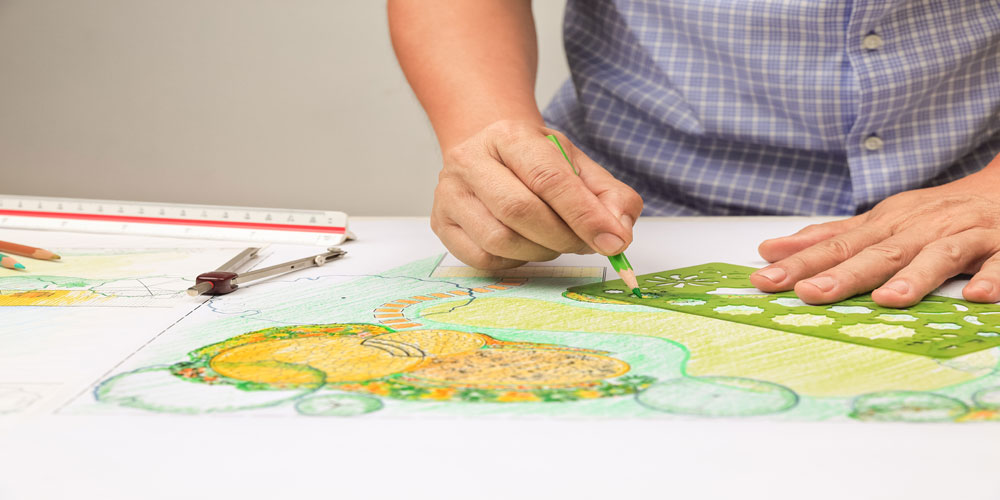
The Role of Landscape Gardeners
Landscape gardening is a blend of art and science, where the natural environment is crafted into aesthetically pleasing and functional spaces. Landscape gardeners, or landscape architects, play a pivotal role in designing, planning, and maintaining outdoor spaces. Their work impacts both private and public areas, enhancing the quality of life for individuals and communities. This post delves into the multifaceted role of landscape gardeners, exploring their responsibilities, skills, and the significance of their work.

The Scope of Landscape Gardening
Designing Outdoor Spaces
One of the primary roles of landscape gardeners is designing outdoor spaces. This involves creating plans that harmonize with the natural surroundings while meeting the needs and preferences of the clients. Whether it’s a private garden, a public park, or a commercial landscape, the design process requires a deep understanding of horticulture, soil science, and environmental sustainability. Landscape gardeners must consider factors such as climate, topography, and existing vegetation to create a design that is both beautiful and functional.
Planning and Execution
Once the design is finalized, landscape gardeners move to the planning and execution phase. This involves selecting appropriate plants, materials, and construction methods. The choice of plants is critical, as they must thrive in the specific environmental conditions of the site. Gardeners also oversee the construction of features such as pathways, patios, water features, and lighting. This phase requires coordination with other professionals, such as architects, engineers, and contractors, to ensure the design is implemented accurately and efficiently.
Maintenance and Management
The role of a landscape gardener does not end with the completion of a project. Ongoing maintenance is crucial to preserve the beauty and health of the landscape. This includes tasks such as pruning, fertilizing, pest control, and irrigation management. Landscape gardeners must be knowledgeable about the lifecycle and care requirements of various plants to ensure they remain vibrant and healthy. They also need to adapt to seasonal changes and manage the landscape accordingly.
Skills and Knowledge
Horticultural Expertise
A deep knowledge of plants is fundamental for landscape gardeners. This includes understanding different species, their growth habits, soil requirements, and compatibility with other plants. Horticultural expertise allows gardeners to create sustainable landscapes that require minimal intervention and are resilient to pests and diseases.
Artistic Vision
Landscape gardening is an art form that requires a keen eye for design and aesthetics. Gardeners must have a strong sense of spatial arrangement, color theory, and texture. The ability to visualize how a space will look once fully grown and how different elements will interact is crucial for creating harmonious and appealing landscapes.
Technical Proficiency
In addition to artistic skills, landscape gardeners need technical proficiency. This includes knowledge of construction techniques, irrigation systems, and landscape lighting. They must be able to read and create technical drawings and plans, as well as understand and comply with local regulations and codes.
Environmental Stewardship
Sustainable practices are increasingly important in landscape gardening. Gardeners must be aware of the environmental impact of their work and strive to minimize it. This involves using native plants, reducing water consumption, and avoiding harmful chemicals. By promoting biodiversity and using eco-friendly materials, landscape gardeners contribute to the health of the environment.
The Impact of Landscape Gardening
Enhancing Aesthetic Appeal
One of the most visible impacts of landscape gardening is the enhancement of aesthetic appeal. Well-designed landscapes can transform ordinary spaces into beautiful, inviting areas. This not only improves the visual appeal but also provides a sense of tranquility and relaxation for those who use the space.
Improving Functionality
Beyond aesthetics, landscape gardening also improves the functionality of outdoor spaces. Thoughtfully designed landscapes can provide areas for recreation, relaxation, and social interaction. In urban environments, green spaces offer a respite from the hustle and bustle, contributing to mental and physical well-being.
Environmental Benefits
Landscape gardening plays a significant role in environmental conservation. By incorporating native plants and sustainable practices, gardeners help preserve local ecosystems and biodiversity. Green spaces also contribute to air and water purification, reduce urban heat islands, and provide habitats for wildlife.
Economic Value
Well-maintained landscapes can increase property values and attract business. In residential areas, attractive gardens boost curb appeal and can make properties more desirable. In commercial settings, pleasant outdoor spaces can draw customers and improve employee satisfaction and productivity.
Challenges in Landscape Gardening
Climate Change
Climate change poses significant challenges for landscape gardeners. Changes in temperature, precipitation patterns, and extreme weather events can impact plant health and survival. Gardeners must adapt their practices and choose resilient plants to cope with these changes.
Urbanisation
Rapid urbanisation reduces the availability of green spaces and increases the demand for landscape gardening in smaller, more confined areas. Gardeners must find creative solutions to incorporate greenery into urban environments, such as rooftop gardens and vertical landscaping.
Water Management
Water scarcity is a growing concern in many parts of the world. Landscape gardeners must implement efficient irrigation systems and choose drought-tolerant plants to conserve water. Sustainable water management practices are essential for the long-term viability of landscapes.
The Future of Landscape Gardening
Technological Advancements
Technology is transforming landscape gardening. Innovations such as automated irrigation systems, drones for site analysis, and advanced design software are making the planning and maintenance of landscapes more efficient and precise. These tools enable gardeners to create more sustainable and resilient landscapes.
Emphasis on Sustainability
The trend towards sustainability will continue to shape the future of landscape gardening. Gardeners will increasingly focus on eco-friendly practices, such as organic gardening, permaculture, and the use of renewable resources. This shift will promote healthier ecosystems and contribute to environmental conservation.
Community Engagement
Community involvement in landscape projects is becoming more common. Engaging local communities in the design and maintenance of public spaces fosters a sense of ownership and responsibility. This collaborative approach can lead to more vibrant and well-maintained landscapes that reflect the needs and preferences of the community.
Role of Landscape Gardeners
Landscape gardeners play a crucial role in shaping our environment. Their work enhances the beauty, functionality, and sustainability of outdoor spaces. By combining artistic vision with technical expertise and a commitment to environmental stewardship, landscape gardeners create spaces that enrich our lives and protect our planet. As the world faces new challenges, the role of landscape gardeners will become increasingly important in promoting sustainable and resilient landscapes for future generations.


